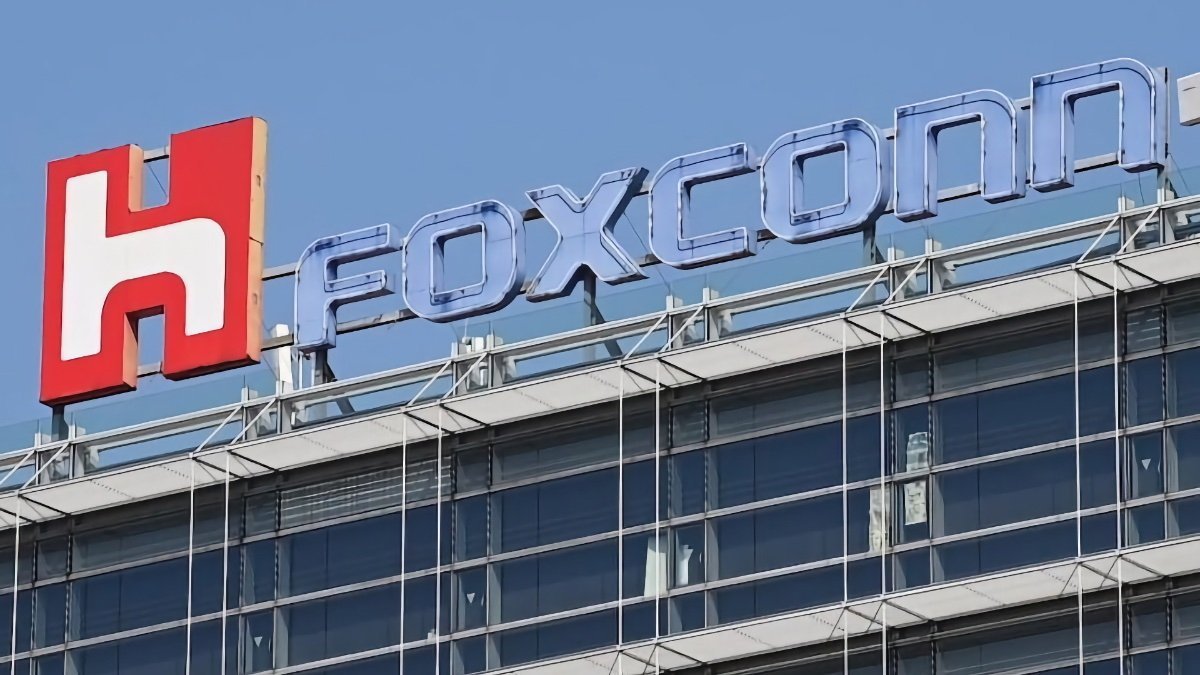Trump visit bolsters Saudi AI
Saudi Arabia’s artificial intelligenceambitions were boosted following US president Donald Trump’s recent trip to the Middle East.
The Trump administration’s import tariffs and AI chip export restrictions appear to have been behind the decision by Saudi Arabian datacentre operator DataVolt to sign a major server deal with US firm Supermicro. The company’s selection of the US firm for its bn investment in AI datacentre technology will secure graphics processing unithardware currently seen as the best way to provide the accelerated processing power AI workloads require.
“Partnering with Supermicro guarantees us a US-made supply chain for critical GPU systems and positions DataVolt to accelerate our investment plans,” said Rajit Nanda, CEO of DataVolt.
Supermicro said the collaboration would fast-track delivery of its ultra-dense GPU platforms, storage and rack-based systems for DataVolt’s hyperscale gigawatt-class renewable and net-zero green AI datacentre facilities.
The hardware uses liquid cooling, which Supermicro said reduces power costs by up to 40%, which allows datacentres to run more efficiently with lower power usage effectiveness.
“We are excited to collaborate with DataVolt to bring our advanced AI systems featuring the latest direct liquid cooling technology, powered by local renewable, sustainable and net-zero green technology,” said Charles Liang, president and CEO of Supermicro.
Supermicro claims its latest AI infrastructure is able to lower the total cost of ownership by up to 20%.
Along with its Saudi AI datacentre build, Datavolt, Google, Oracle, Salesforce, AMD and Uber have said they are committed to the investment of bn in cutting-edge transformative technologies in both the US and Saudi Arabia.
Oracle said it plans to invest bn over the next 10 years to deliver cloud and AI technology to Saudi Arabia. “Thanks to the decisive actions and strong leadership of President Trump and his administration, Oracle is providing the world’s most advanced cloud and AI technology to Saudi Arabia,” said Safra Catz, CEO at Oracle. “Our expanded partnership with the kingdom will create new opportunities for its economy and deliver better health outcomes for its people.”
As part of Trump’s visit, Humain, a subsidiary of Saudi Arabia’s Public Investment Fund, also announced a bn deal with US chipmaker AMD to develop 500 megawatts of open, scalable, resilient and cost-efficient AI infrastructure that spans Saudi Arabia and the US.
Through the collaboration, Humain will oversee end-to-end delivery, including hyperscale datacentres, sustainable power systems and global fibre interconnects, while AMD has said it will be providing its AI compute processors and the AMD ROCm open software ecosystem.
Tareq Amin, CEO of Humain, described the initiative as “an open collaboration to the world’s innovators”. “We are democratising AI at the compute level, ensuring that access to advanced AI is limited only by imagination, not by infrastructure,” he said.
about AI in Saudi Arabia
Saudi puts bn into AI as experts debate next steps: The kingdom’s Leap 2025 tech show is the backdrop for huge investment, plus debate over the future of artificial intelligence as a productivity tool but which can also potentially undermine human society.
Saudi Arabia struggling to reach global leadership in deeptech: Petrostate monarchy trying to build surrogate industry made of foreign startups because own ecosystem is too immature.
A number of US tech firms have made major investments in Saudi this year, driven by the kingdom’s ambitions to boost AI. Data for the Saudi Data and AI Authority from Accenture shows that generative AIhas the potential to elevate its gross domestic productby approximately bn by augmenting and automating nearly a third of all jobs.
In February, Accenture said it was collaborating with Google Cloud to accelerate the adoption of cloud and GenAI capabilities in Saudi Arabia to support the KSA’s local data, operational and software sovereignty needs. As part of this work, Google and Accenture announced a joint centre of excellence for GenAI.
During the Leap 2025 conference, Salesforce said it would be investing m in Saudi, with the focus again on AI. The company announced a regional head office in Riyadh, and as part of this expansion, Salesforce said it was working with Amazon Web Servicesto deliver its Hyperforce, next-generation platform architecture to the kingdom.
The work with AWS means Salesforce’s global customers are able to run workloads locally through a distributed public cloud infrastructure that Salesforce said complies with local regulations.
Commenting on Salesforce’s plans, Abdullah Alswaha, minister of communications and information technology, said: “We look forward to seeing Salesforce expand its presence here and welcome the investment in AI that will drive unprecedented innovation and operational efficiency, supporting the realisation of Saudi Arabia’s Vision 2030 goals.”
While the White House has linked Trump’s visit to the investments major tech firms are making in Saudi Arabia, the kingdom faces a number of challenges as it fleshes out its AI ambitions.
According to a March 2025 paper from the Carnegie Endowment for International Peace, Vision 2030 represents a future-orientated vision to make religion less of a focal point of its society, particularly with regards to how Saudi Arabia is perceived internationally. But the paper notes that private-sector employers face the challenge of hiring Saudi citizens to fill high-skilled jobs. “This skills gap will only worsen as the kingdom targets a wide range of highly skilled sectors, including AI startups, green technology, datacentres, e-gaming, fintech and EV production,” it says.
#trump #visit #bolsters #saudi
Trump visit bolsters Saudi AI
Saudi Arabia’s artificial intelligenceambitions were boosted following US president Donald Trump’s recent trip to the Middle East.
The Trump administration’s import tariffs and AI chip export restrictions appear to have been behind the decision by Saudi Arabian datacentre operator DataVolt to sign a major server deal with US firm Supermicro. The company’s selection of the US firm for its bn investment in AI datacentre technology will secure graphics processing unithardware currently seen as the best way to provide the accelerated processing power AI workloads require.
“Partnering with Supermicro guarantees us a US-made supply chain for critical GPU systems and positions DataVolt to accelerate our investment plans,” said Rajit Nanda, CEO of DataVolt.
Supermicro said the collaboration would fast-track delivery of its ultra-dense GPU platforms, storage and rack-based systems for DataVolt’s hyperscale gigawatt-class renewable and net-zero green AI datacentre facilities.
The hardware uses liquid cooling, which Supermicro said reduces power costs by up to 40%, which allows datacentres to run more efficiently with lower power usage effectiveness.
“We are excited to collaborate with DataVolt to bring our advanced AI systems featuring the latest direct liquid cooling technology, powered by local renewable, sustainable and net-zero green technology,” said Charles Liang, president and CEO of Supermicro.
Supermicro claims its latest AI infrastructure is able to lower the total cost of ownership by up to 20%.
Along with its Saudi AI datacentre build, Datavolt, Google, Oracle, Salesforce, AMD and Uber have said they are committed to the investment of bn in cutting-edge transformative technologies in both the US and Saudi Arabia.
Oracle said it plans to invest bn over the next 10 years to deliver cloud and AI technology to Saudi Arabia. “Thanks to the decisive actions and strong leadership of President Trump and his administration, Oracle is providing the world’s most advanced cloud and AI technology to Saudi Arabia,” said Safra Catz, CEO at Oracle. “Our expanded partnership with the kingdom will create new opportunities for its economy and deliver better health outcomes for its people.”
As part of Trump’s visit, Humain, a subsidiary of Saudi Arabia’s Public Investment Fund, also announced a bn deal with US chipmaker AMD to develop 500 megawatts of open, scalable, resilient and cost-efficient AI infrastructure that spans Saudi Arabia and the US.
Through the collaboration, Humain will oversee end-to-end delivery, including hyperscale datacentres, sustainable power systems and global fibre interconnects, while AMD has said it will be providing its AI compute processors and the AMD ROCm open software ecosystem.
Tareq Amin, CEO of Humain, described the initiative as “an open collaboration to the world’s innovators”. “We are democratising AI at the compute level, ensuring that access to advanced AI is limited only by imagination, not by infrastructure,” he said.
about AI in Saudi Arabia
Saudi puts bn into AI as experts debate next steps: The kingdom’s Leap 2025 tech show is the backdrop for huge investment, plus debate over the future of artificial intelligence as a productivity tool but which can also potentially undermine human society.
Saudi Arabia struggling to reach global leadership in deeptech: Petrostate monarchy trying to build surrogate industry made of foreign startups because own ecosystem is too immature.
A number of US tech firms have made major investments in Saudi this year, driven by the kingdom’s ambitions to boost AI. Data for the Saudi Data and AI Authority from Accenture shows that generative AIhas the potential to elevate its gross domestic productby approximately bn by augmenting and automating nearly a third of all jobs.
In February, Accenture said it was collaborating with Google Cloud to accelerate the adoption of cloud and GenAI capabilities in Saudi Arabia to support the KSA’s local data, operational and software sovereignty needs. As part of this work, Google and Accenture announced a joint centre of excellence for GenAI.
During the Leap 2025 conference, Salesforce said it would be investing m in Saudi, with the focus again on AI. The company announced a regional head office in Riyadh, and as part of this expansion, Salesforce said it was working with Amazon Web Servicesto deliver its Hyperforce, next-generation platform architecture to the kingdom.
The work with AWS means Salesforce’s global customers are able to run workloads locally through a distributed public cloud infrastructure that Salesforce said complies with local regulations.
Commenting on Salesforce’s plans, Abdullah Alswaha, minister of communications and information technology, said: “We look forward to seeing Salesforce expand its presence here and welcome the investment in AI that will drive unprecedented innovation and operational efficiency, supporting the realisation of Saudi Arabia’s Vision 2030 goals.”
While the White House has linked Trump’s visit to the investments major tech firms are making in Saudi Arabia, the kingdom faces a number of challenges as it fleshes out its AI ambitions.
According to a March 2025 paper from the Carnegie Endowment for International Peace, Vision 2030 represents a future-orientated vision to make religion less of a focal point of its society, particularly with regards to how Saudi Arabia is perceived internationally. But the paper notes that private-sector employers face the challenge of hiring Saudi citizens to fill high-skilled jobs. “This skills gap will only worsen as the kingdom targets a wide range of highly skilled sectors, including AI startups, green technology, datacentres, e-gaming, fintech and EV production,” it says.
#trump #visit #bolsters #saudi
·135 Views







